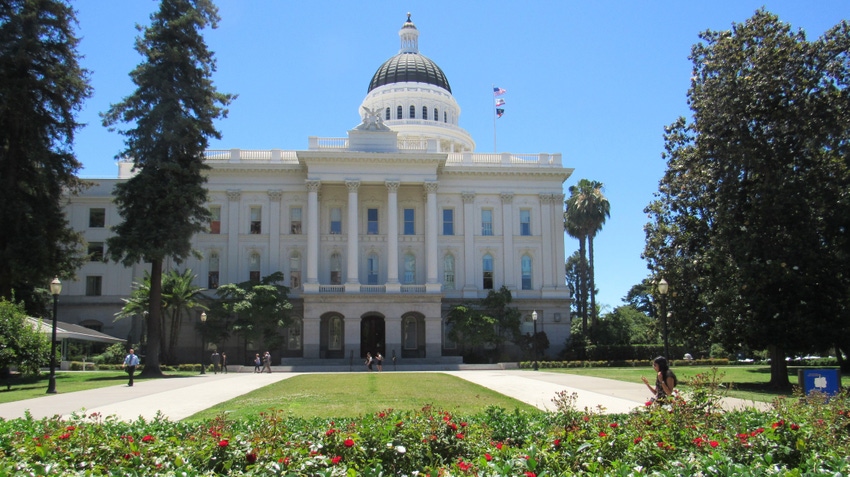
She hasn’t quite come full circle, but Sacramento agricultural lobbyist Noelle Cremers is back to advocating for a single commodity after spending 15 years as a veritable face of the California Farm Bureau Federation.
The Wine Institute announced recently that it had hired Cremers March 23 as its director of environmental and regulatory affairs, working on such matters as water and air quality and vineyard sustainability.
The hiring gives the San Francisco-based institute an advocate who is well known in the halls of legislative offices and state and federal regulatory agencies, as she represented the state Farm Bureau in everything from public hearings on water to committees on the arrival of gray wolf populations.
Cremers says she was intrigued by the opportunity to delve into specific issues pertaining to California wine, a significant contributor to the state’s economy.
“I’ve always been a supporter of California wineries,” Cremers told Western Farm Press. “It was an opportunity to dig deeper into some of the specifics of the regulations.
“At Farm Bureau there are so many different regulations facing farmers across the board that we don’t always have the opportunity to dig into them with as much depth,” she said. “In Wine Institute, it’s allowing me to focus on one specific production system which allows a more dedicated focus.”
Starting in beef
Cremers got her start with a food that’s often paired with wine at the dinner table – beef.
With a Master of Agriculture degree from Colorado State University and a bachelor’s degree in animal science from California Polytechnic University, San Luis Obispo, Cremers represented ranchers on water, air and wildlife issues with the California Cattlemen’s Association.
She was there for two years before being hired as the Farm Bureau’s senior policy advisor, most recently focusing on policies related to air quality, endangered species and climate change. She was also a fellow in Class 35 of the California Agricultural Leadership Program.
“Noelle has been a great asset to farmers and ranchers, both through her work with Farm Bureau and before that with the California Cattlemen’s Association,” CFBF president Jamie Johansson said in an email. “We are happy she will continue to serve the agricultural community.”
Representing wineries
Established in 1934, Wine Institute is a public policy advocacy group of more than 1,000 California wineries and affiliated businesses that initiates and advocates for policies to promote the responsible production, consumption and enjoyment of wine, according to its website.
The organization also partners with Visit California to showcase California’s wine and food offerings and the state as a top travel destination. Cremers is replacing Adam Kotin in representing the interests of California’s wineries on environmental matters.
“I was personally thrilled that Noelle Cremers was willing to join our team at Wine Institute as I’ve had the opportunity to work with her several times over the years and I have always been impressed with her work,” said Tim Schmelzer, the Wine Institute’s vice president of state relations.
“Noelle comes to us with well-earned respect and credibility from both regulators and the regulated community,” he said in an email. “We at Wine Institute are confident that she will be a tremendous advocate for California wineries.”
Focus on water quality
Cremers’ focus will largely include water quality – specifically a set of proposed state waste discharge requirements for wineries. The regulations being considered by the State Water Resources Control Board would address land discharge of process water from wineries, grape juice storage facilities, and wine distillation facilties, according to the panel’s website.
The agency unveiled a draft order in February 2019 and held outreach meetings last year in Hopland, Lodi, Napa, San Luis Obispo and Temecula.
“They are a ways down the road on that,” Cremers said. “They’ve been in conversations on this for four years and they are close to being finished, although there’s a lot of question about COVID-19 and how that played into the timeline if there are further delays.
“California has an incredibly high standard when it comes to our environment, so there are ongoing conversations in all the environmental areas about how we can continue to improve,” she said. “There will definitely be plenty of opportunity for Wine Institute to engage in those discussions.”
About the Author(s)
You May Also Like






